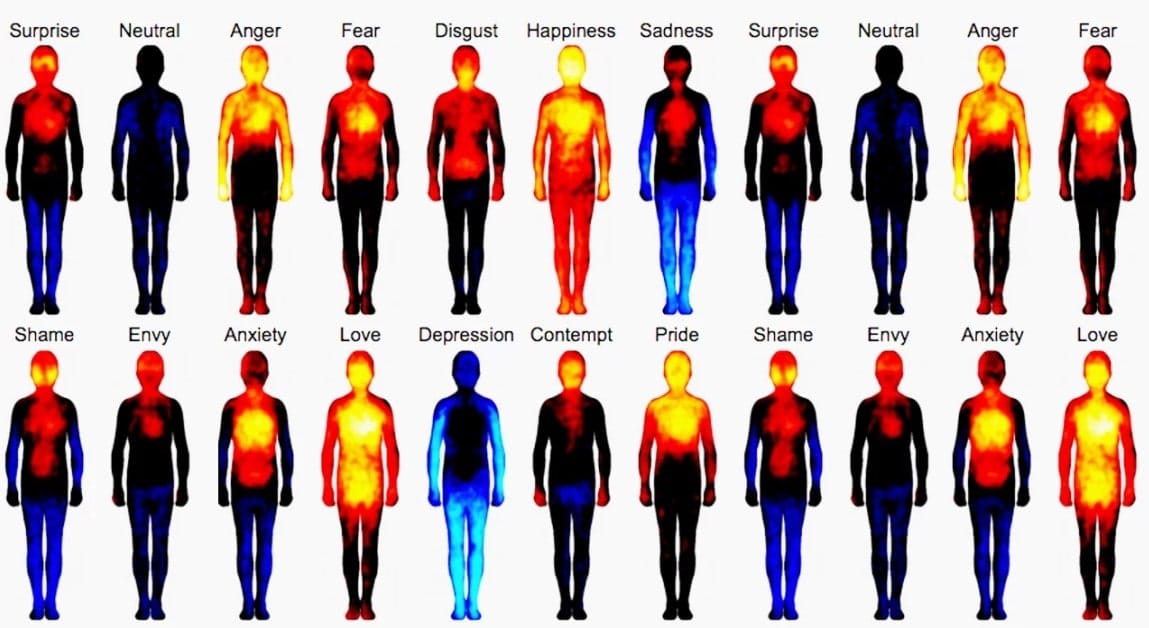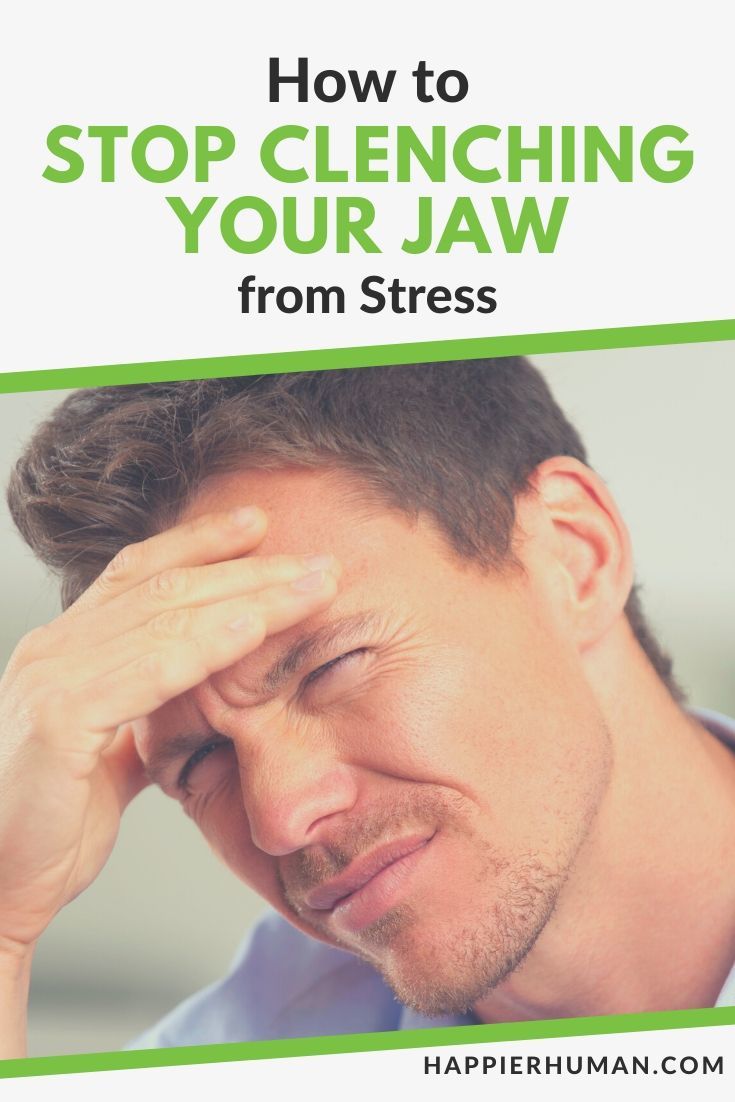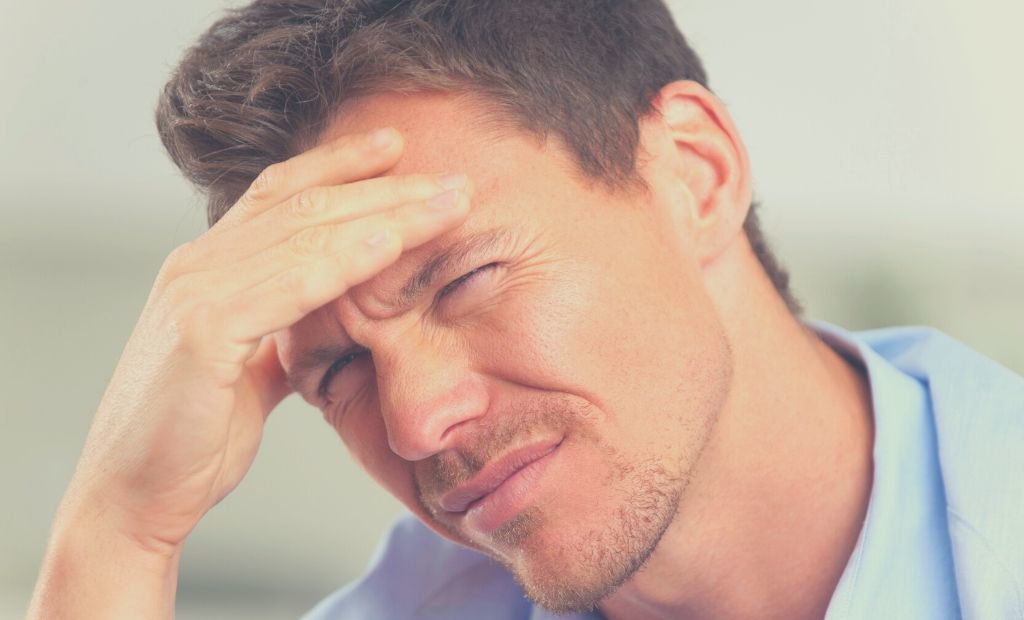There might be affiliate links on this page, which means we get a small commission of anything you buy. As an Amazon Associate we earn from qualifying purchases. Please do your own research before making any online purchase.
Stress can have a major negative impact on our health. In fact, Whenever stressful situations happen, it affects our mind, our energy, and our general behavior. But oftentimes we forget that stress has a deeper influence on our body and the subconscious mind. And one negative consequence of it is the excessive jaw clenching from stress.
I had a similar situation a few months back. My dentist told me that for the first time, he was having multiple patients younger than 30 with excessive symptoms of bruxism, jaw clenching disease. When it happens at this age, it’s usually a sign of stress.
When I got back home I did some research on the topic and found that this condition is happening all over the world. Dentists from different parts of the world are noticing an increase in this condition among the younger generation.
So, while this may seem like a serious condition, the good news is it’s usually treatable.
In this article, I’m going to reveal how stress affects your dental health and what you can do to stop clenching your jaw.
What You Will Learn
How is Stress Related to Clenching Your Jaws?
Every time you experience stress, emotions start rushing in your brain and body. These emotions can be the reason for showing symptoms of any stress-related conditions.
In 2013, a group of Finish scientists conducted research to show how emotions affect humans. They built a heat map around 700 volunteers and showed them different words, situations, and scenarios. The participants had to point out where they feel the most emotional regarding the situations.
Here is a visual :

Via An Atlas Of The Human Body That Maps Where We Feel Emotions
The researchers found out that the reactions to different situations are almost universal.
They are tied to biological systems rather than cultural, personal or common practices.
As you can see, people react almost instantly, to any kind of negative or positive emotion.
Research shows that one of the first things people do after experiencing stressful situations is tightening the muscles of the face and jaw, as well as around the eyes and mouth.
Also, experiencing stress daily may cause chronic pain in the neck and shoulders.
It can be the reason for developing heart diseases, obesity, anxiety, gastrovascular diseases, etc.
However, there are minor health-related issues caused by stress that in the long run, can become severe.
This is when teeth grinding and jaw clenching might start to happen. It might be a natural way of dealing with stress for you personally, one that you might not even notice. You might hold your jaw open when you’re awake and keep it tight during your sleep.
Jaw clenching or bruxism is a condition when you grind, clench or gnash your teeth.
It can happen while you’re awake, but it usually happens during your sleep.
These are some of the symptoms of bruxism:
If it goes untreated, this condition can become severe. It can be the main reason for worn-down teeth, which ultimately, can lead to tooth loss.
The main thing to do next time you’re stressed is to try to focus on your body and feel in which part you experience the pain. If you notice the jaw clenching as one of the signs, stay calm and remember that there are few things you can do to alleviate the stress on your jaw.
What You Can Do To Stop Clenching Your Jaw?
Here are a few things you can do to prevent or stop clenching your jaw again.
1. Visit Your Dentist
Of course, the first logical thing you should do is to visit your doctor. Talk the symptoms with him/her, let them know when did you start to notice this happening.
Jaw clenching may happen from stress, but it may also not. So, before your dentist can diagnose you with something, he/she should know all the info related to it.
2. Try a Manual Jaw Exercise
You can do some exercise by yourself, to relax your jaw.
Start by doing small mouth-opening and mouth closing for warm-up.
After that, put your fingers on the four bottom teeth at the front and start pulling down.
Keep that position for 30 seconds and then slowly put your jaw in the normal position.
Another exercise you can do is this one: put your tongue behind your upper front teeth.
Then slowly open the bottom jaw, to keep the teeth away from each other.
You can do this several times and remember to keep your jaw relaxed.
Here’s one educational video on how to massage your jaw, that should help you with this condition.
View this post on Instagram
3. Lower Your Consumption of Alcohol and Caffeine
One way to stop clenching your jaw is to keep the consumption of alcohol and caffeine to a minimum. These two drinks are known for augmenting the grinding of the teeth and clenching your jaw.
Of course, this doesn’t mean you have to completely take these drinks out of your diet. Instead, keep in mind that can lead to stress, so if you’re struggling with it on a continuous basis, then you might want to consider cutting back a bit.
4. Change Your Diet
People who experience jaw pain may find it easier to eat softer food. Or, at least, choose food that doesn’t require too much chewing. Gums, popcorn, chips, maybe, you should keep this food to a minimum.
So, when choosing your next meal, keep this fact in mind.
5. Wear a Mouth Guard
If you’re planning to wear a mouth guard, you might need to consult with your dentist.
You might need to have one custom-made, specifically for you, so it may take some time before you start using it. They are more expensive, but also more effective in handling the problem.
Usually, mouth guards are made of hard acrylic or soft plastic. The main function of the mouth guard is to keep your upper and lower teeth from touching.This way, it stops your teeth from grinding and relaxes your jaw.
6. Take Time To Relax
It’s important to find a healthy way to deal with stress. Otherwise, other more serious conditions may happen to you.
Physical activity is one piece of advice that never goes out of style, simply because there are countless benefits of it, both on our mind and body. You can practice meditation or use a stress ball, to handle the stress more effectively.
Here are our suggestions on the best stress ball for handling nervousness, stress, and anxiety.
Final Thought on Clenching Your Jaw from Stress
Unfortunately, stressful situations are part of everyday life and they affect your physical and mental health. One condition that you can develop from experiencing stress or anxiety is clenching your jaw. It’s not something to be terrified of, but if it goes untreated, it may cause more serious problems.
The important thing to remember is that you have power over how to handle stress.
So, the next time you notice some signs of jaw clenching, visit a doctor and practice the tips from here.
Over time, hopefully, you’ll manage to stop clenching your jaw and become more stress-free.


